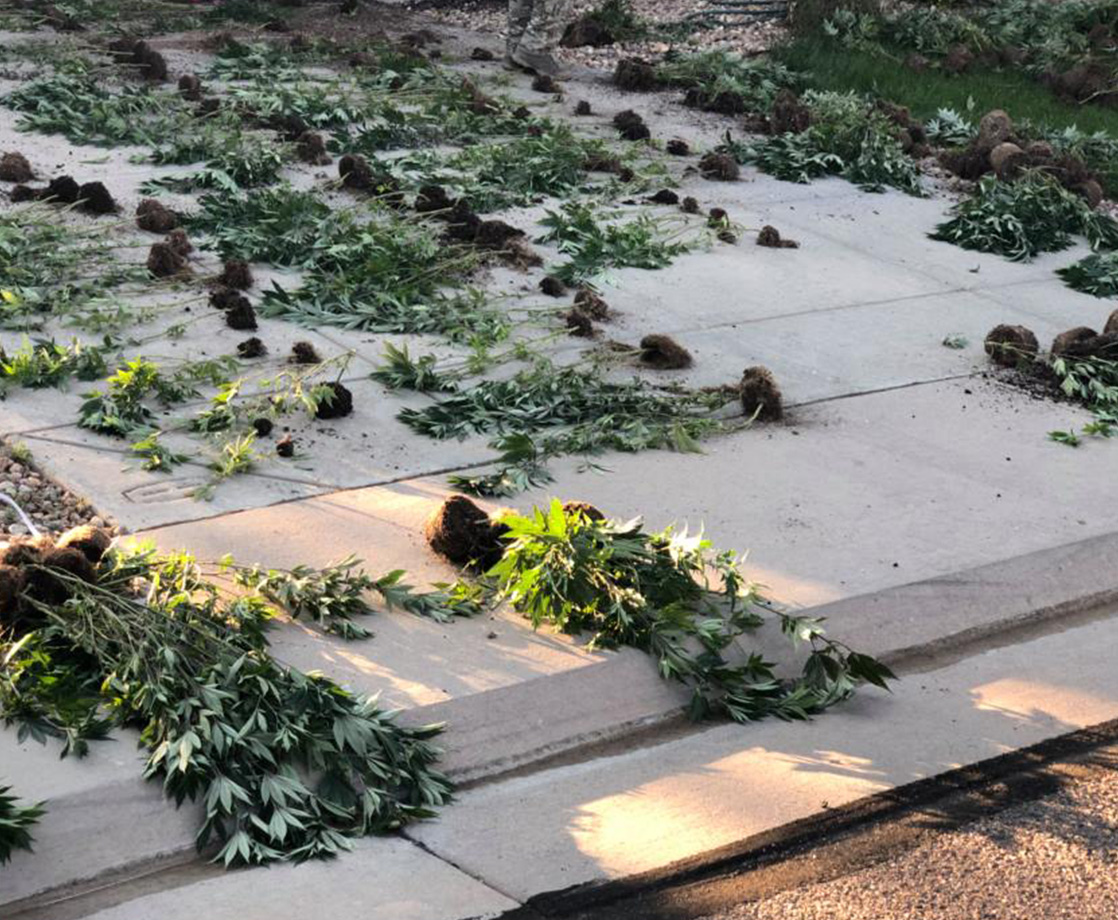Lead image via
When Colorado rolled out America’s first recreational cannabis market in 2014, Denver took the challenge on head first. Almost immediately, the Mile High City became the country’s premier green rush town, with more than 1,100 legal marijuana businesses, including almost 500 dispensaries, now headquartered in the Centennial State capital.
But as Denver’s cannabis industry continues to grow, the city and its surrounding municipalities have also attracted its fare share of black market bud, as illicit growers and distributors use the legal market to camouflage their out-of-state trafficking. This week, those two forces came to a head, as Mayor Michael Hancock released a new city report lauding Denver’s legal weed prosperity on the same day that a team of federal and local law enforcement officers executed a series of raids on suspected illicit grow houses hidden across the Mile High metro area.
According to Forbes, Denver officials released the city’s Annual Marijuana Report on Thursday, detailing a record year for legal cannabis sales and local tax revenue. In 2017 alone, Denver saw a 20% spike in retail revenue, and brought in more than $48 million in city taxes. Mayor Hancock, who originally opposed legalization before the state law passed in 2012, conceded that ending prohibition has been a successful endeavor.
“This new report demonstrates Denver’s coordinated approach between multiple agencies to manage marijuana is working,” Mayor Hancock said in press release announcing the new statistics.
In addition to Denver’s industry success, recent reports from across Colorado show a thriving legal market, in which the majority of local smokers purchase their stash from licensed dispensaries. Plus, teen cannabis use numbers are on the decline.
“We took on the daunting challenge of becoming the first major city in America to manage legalized recreational marijuana and we are having success,” Mayor Hancock added. “That’s because of coordination between Denver’s Excise and Licenses, Denver’s Fire Department, Police Department, Department of Public Health and Environment, Community Planning and Development, as well as our partners in other city agencies, the community from the marijuana industry, and public health advocates.”
At the same time that the mayor was complimenting the city’s police force for helping to support legal weed, Denver cops were busy accompanying DEA and FBI agents to homes and warehouses across the region, taking down more than a dozen suspected black market grow operations. A slew of local news outlets showed imagery of uprooted plants strewn across suburban driveways and people in handcuffs.
Neither the federal agencies nor local law enforcement involved in Thursday’s raids have confirmed a final tally on arrests or confiscations, but according to the Denver Post, warrants were executed in a handful of cities around the Colorado capital, including Denver, Aurora, Broomfield, Commerce City, Lakewood, and Thornton.
“There’s quite a few in Thornton,” Denver DEA spokesperson Deanne Rueter told the Post. “A lot of cities are involved.”
As Denver and surrounding cities continue to find success in all facets of the legal weed industry, the area’s green rush growth has come with its fair share of criminal activities, as well. Until marijuana prohibition is finally lifted on a federal level, there will always be an incentive to grow cannabis in legal states and move it across local borders for black market profits, putting the brunt of that problem on Washington D.C. — not regulators in Colorado.
Follow Zach Harris on Twitter











